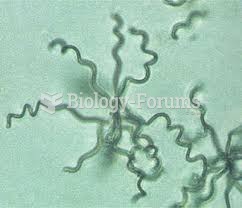|
|
|
Did you know?
Intradermal injections are somewhat difficult to correctly administer because the skin layers are so thin that it is easy to accidentally punch through to the deeper subcutaneous layer.
Did you know?
Drug-induced pharmacodynamic effects manifested in older adults include drug-induced renal toxicity, which can be a major factor when these adults are experiencing other kidney problems.
Did you know?
The longest a person has survived after a heart transplant is 24 years.
Did you know?
There are more bacteria in your mouth than there are people in the world.
Did you know?
Bacteria have flourished on the earth for over three billion years. They were the first life forms on the planet.







